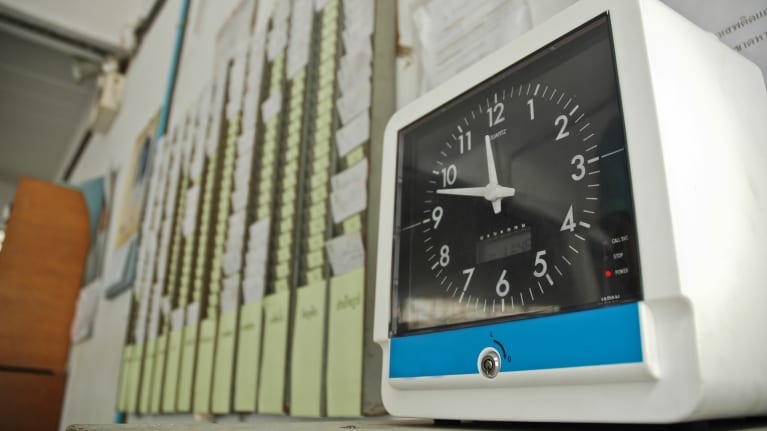
Employee testimony consistently asserting that employees were urged not to record their pre- and post-shift work hours is sufficient to recover damages where the employer failed to keep accurate records of off-the-clock time, the 5th U.S. Circuit Court of Appeals ruled.
Construction employees at a fire sprinkler installation and service company typically worked in two-person crews. The crews occasionally worked at the shop but more often were sent out to client jobsites. Most jobsites were located close by, but some were up to an hour away. Shifts ran from 7 a.m. to 3:30 p.m. with crews reporting to the shop, loading needed materials onto a company truck and driving to a jobsite. Foremen were required to drive back to the shop at shift's end to return the trucks.
Employees were paid by the hour and required to hand-record the total number of hours worked each day on a company time sheet.
A U.S. Department of Labor (DOL) wage and hour investigator initiated an inquiry into the company's compensation practices, interviewing nine employees and the married couple who owned the company, and analyzing all time sheets for the previous two years. (Records were missing for two weeks of that period.) The investigator found the construction employees had been working without compensation before and after their shifts and told the owners that employees must be compensated for that time. The owners refused to pay the back wages, stating that the employees should have recorded any time worked before and after their shifts.
The DOL filed suit against the company, alleging overtime and record-keeping violations of the Fair Labor Standards Act (FLSA) and seeking back wages and liquidated damages for the employees.
The district court found the company had failed to keep accurate records of off-the-clock time for the investigative period. Six employees testified that employees were required to arrive at the shop by 6:45 a.m. and typically left the jobsite at 3:30 p.m. to drive back to the shop, with no compensation for pre- and post-shift time. Agreeing with the DOL's calculations, the court held the company liable to 53 construction employees for $121,687 in back wages and $121,687 in liquidated damages.
The company appealed, arguing that the court erred in extrapolating from the testimony of six employees to find liability to all employees and to calculate damages.
On appeal, the 5th Circuit noted that the six employees had consistently testified that the lead supervisor required them to report to work as early as 6:30 a.m. and no later than 6:45 a.m. at the risk of discipline. During this time, workers engaged in compensable activity, such as loading materials. They left jobsites at 3:30 p.m., and the average drive time to the shop was 30 minutes, according to employee testimony.
Even though the company manual instructed employees to record all their time, all testifying employees said the lead supervisor told them not to record time worked pre- or post-shift and that if they did, they would not be paid for it. This amounted to a de facto policy that they should not record that time, the appeals court said. The sample size of testifying employees is small, but accounts for 11 percent of the employees, the court noted, finding the company liable for unpaid overtime for all construction employees.
Responding to the company's argument that the investigator overgeneralized in determining the back wages award, the court endorsed her approach as conservative. The investigator made initial calculations based on employee interviews because the company didn't provide her with time sheets until almost two years into the investigation, the court noted. Her calculations assumed that employees had worked 15 minutes prior to each shift and that foremen worked an average of 30 additional minutes in driving the trucks back to the shop. She calculated damages for the weeks when employees exceeded 40 hours, following the FLSA's overtime requirement, and did not calculate damages for four weeks of the year to account for vacations and holidays.
The company argued that the calculations failed to account for variations in employees' schedules but could only provide a summary chart of work projects based on the owner's memory. Finding the chart unreliable, the appeals court affirmed the finding of liability and the calculation of damages.
U.S. Department of Labor v. Five Star Automatic Fire Protection LLC, 5th Cir., No. 19-51119 (Feb. 9, 2021).
Professional Pointer: This opinion makes clear that simply including lawful payroll policies in a company handbook is insufficient. An employer must ensure that its supervisors and employees follow the policies in practice. In this case, the court refused to penalize employees for their employer's record-keeping shortcomings or to allow the employer to benefit from its failure to keep proper payroll records. Implementation of employer payroll policies should be regularly reviewed to avoid liability under the FLSA.
Rosemarie Lally, J.D., is a freelance legal writer based in Washington, D.C.